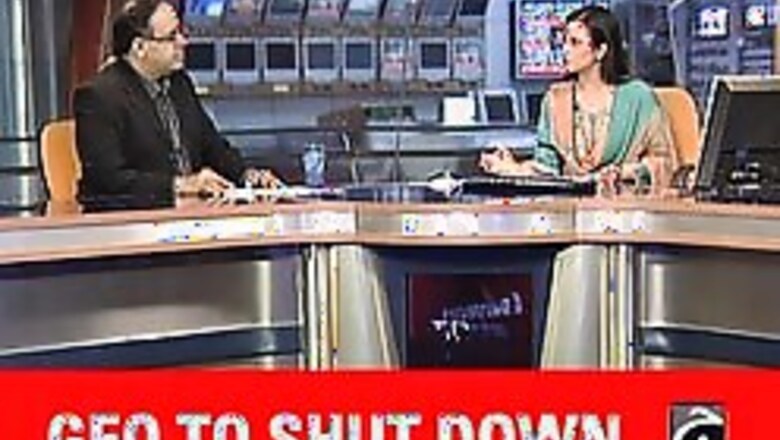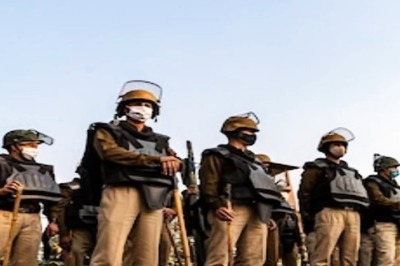
views
Islamabad: Pakistan's most popular private television network went back on the air on Monday after signing a government code of conduct that critics say is muzzling independent media before parliamentary elections next month.
All stations banned by President Pervez Musharraf during his state of emergency in November are now broadcasting again, but concerns remain that the former general has whittled away at press freedoms as his loyalists campaign against parties opposed to his continued rule.
Among other things, the code bans live coverage of demonstrations and programs that ''defame or ridicule'' the head of state. It also says anchors and talk show hosts must not express opinions that threaten Pakistan's sovereignty and security.
Musharraf's administration said Geo TV was allowed to resume operations after agreeing to those guidelines.
The station declined to comment on whether there were any conditions, with its president saying only that the government's lifting of the ban was ''a wise and wonderful move.''
''As elections are coming up, more media coverage would make the elections more credible and contribute to the positive development of the country,'' said Geo President Imran Aslam.
The international media watchdog Reporters Without Borders said Geo agreed to stop running programs featuring two independent-minded commentators in return for the lifting of the ban.
''This constitutes yet further evidence that censorship is unfortunately still the rule just a few weeks before the parliamentary elections scheduled for Feb. 18,'' the Paris-based group said in a statement.
Immediately after emergency rule was imposed, Geo was banned along with all private news networks, which had been reporting freely on growing challenges to Musharraf's US-backed rule as well as surging violence by Muslim extremists.
Over the ensuing 10 weeks, the government permitted the other stations to return to the air as they signed the code of conduct, but Geo initially refused to go along.
Media professor Mehdi Hasan said Geo finally gave in because it was being crippled financially by the ban.
''The jobs of hundreds of people were threatened,'' Hasan said. ''They must have felt being absent from the scene for so long would affect their popularity.''
Despite the media crackdown, Geo had managed to broadcast via satellite and over the Internet, but its programs were not available on cable TV, so were not seen by the vast majority of Pakistanis.
Geo's two entertainment channels were restored last month, but its news and sports channels were blocked until Monday.
While there are restrictions, the media is in some respects freer in Pakistan than in many other Asian countries.
Newspapers and TV stations report freely on anti-government protests, opinion pages are full of articles calling on Musharraf to step down and opposition leaders are frequently quoted alleging he is a dictator.
Still, journalists involved in investigative reporting on sensitive topics say they face intimidation and threats.
Musharraf himself frequently cites the country's burgeoning private media as evidence of his democratic credentials. When he seized power while commander of Pakistan's military eight years ago, there was only one TV station, a state-run service that broadcast mostly government propaganda.
During a Monday speech in Brussels, Belgium, Musharraf urged the West to be less critical of his efforts, saying Pakistan needs time to achieve higher standards of human rights and civil liberties.
''You have taken centuries to reach it,'' he said at the start of an eight-day European tour.
Geo, the most popular private TV network, provided live coverage of the anti-Musharraf protests in the months before the state of emergency. It also frequently allowed critics to voice attacks on the president.
Geo's offices were raided by police last March after it aired live coverage of clashes between police and lawyers challenging Musharraf's removal of Iftikhar Mohammed Chaudhry, the Supreme Court's chief justice who had challenged the leader's dominance.
Fellow judges later ordered Chaudhry reinstated, but he was ousted from his judicial post again when Musharraf imposed emergency rule Nov. 3 and remains detained at his official residence in Islamabad.
The parliamentary elections Feb. 18 are seen as key to Pakistan's transition to democracy and come at a time of rising attacks by al-Qaida and Taliban militants, including the Dec. 27 gun and bomb assault that killed opposition leader Benazir Bhutto.
















Comments
0 comment